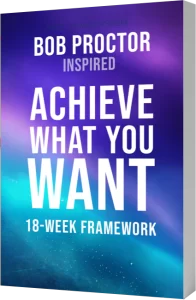You feel flat, joyless, like life lost its flavor. You wonder if it’s depression. Maybe someone told you it is. Maybe someone told you it’s not—but you’re still not okay. Let’s talk.
I am not a licensed mental health professional. I am not giving medical advice or diagnosis. Everything in this video is a theoretical exploration and analysis. If you feel that you are depressed, you must consult a mental health professional and hop on an appropriate treatment plan. But after you do, come back to this video—and let’s dissect your feelings further.
Because sometimes what feels like depression isn’t clinical depression. It’s something else that hurts just as much—but requires a different kind of support.
Here are a few common states that often masquerade as depression:
1. Nervous system shutdown
When your body has been in fight or flight for too long, it may shut down into freeze. You stop feeling things—not because you’re broken, but because your system is trying to protect you. Numbness, fogginess, and flatness can all come from this freeze response.
2. Emotional exhaustion
You’re not sad—you’re depleted. After years of high output and low input, your system crashes. This is what burnout often feels like at the deep end: lifeless, hopeless, done. It mimics depression but often lifts with true rest and repair.
3. Disconnection from desire
When you’ve given up on what you truly want—because you’ve convinced yourself it’s not possible—life starts to feel pointless. That’s not depression. That’s grief for the parts of you that had to go quiet to survive.
4. Suppressed authentic self
If you’re constantly editing yourself to be safe, needed, or likable, your inner self gets buried. That suppression builds pressure over time and can turn into numbness, resentment, or apathy. It can feel like depression, but it’s really a sign you need space to be you.
5. Survival mode burnout
Living from your survival blueprint—hyper-vigilance, over-functioning, proving, protecting—takes a toll. Eventually, you crash. Not because you’re weak, but because survival mode was never meant to be permanent. The collapse afterward looks and feels like depression, but it’s your system begging to shift.
If you’ve already been evaluated by a mental health professional—whether you are in treatment for depression or have been told you don’t meet the clinical criteria—it still never hurts to do your own inner work. In fact, it can be one of the most powerful complements to your healing. Because even if what you’re feeling isn’t depression in a clinical sense… the heaviness, the flatness, the lost spark? It’s real. And it deserves care.
A few ways to begin gently addressing these states:
If your system is in nervous system shutdown → try grounding and gentle reactivation:
- Slow, rhythmic breath (inhale for 4, exhale for 6)
- Cold water on your hands or neck to stimulate the vagus nerve
- Gentle movement: swaying, rocking, slow walking
- Ask yourself: “What do I see? Hear? Feel?”
These simple acts remind your body: you’re safe now.
If you’re emotionally exhausted → replenish before you push:
- Cancel one thing you don’t have to do this week
- Say “no” where you usually say “yes” out of guilt
- Ask: What feels nourishing—not productive?
- Let yourself do nothing. Don’t apologize for it.
This isn’t laziness. It’s maintenance.
If you’ve lost touch with your desires → begin desire journaling:
- Ask: What do I want today? Even if it’s just sunlight
- Don’t judge or rationalize the answers
- Reawaken pleasure through small sensory joys: scent, sound, color
Desire is a muscle. Start light—but start.
If you’ve been suppressing yourself → practice safe expression:
- Free-write without editing
- Voice note yourself saying what you’re afraid to say
- Move your body how it wants—not how it “should”
Let yourself exist unfiltered, even if only in private. That’s sacred.
If you’ve been trapped in a survival loop → begin belief-level work:
- Notice the “rules” running your life (e.g. “If I rest, I’m lazy”)
- Gently ask: Is this actually true—or just familiar?
- Use somatic or nervous-system-aware tools to shift these at the root
Because when you stop fighting survival and start rewiring it, energy returns.
Final Reminder
This isn’t about fixing yourself. It’s about meeting yourself where you are—with compassion and curiosity. Joy doesn’t come from pushing through. It comes from reconnecting in.




